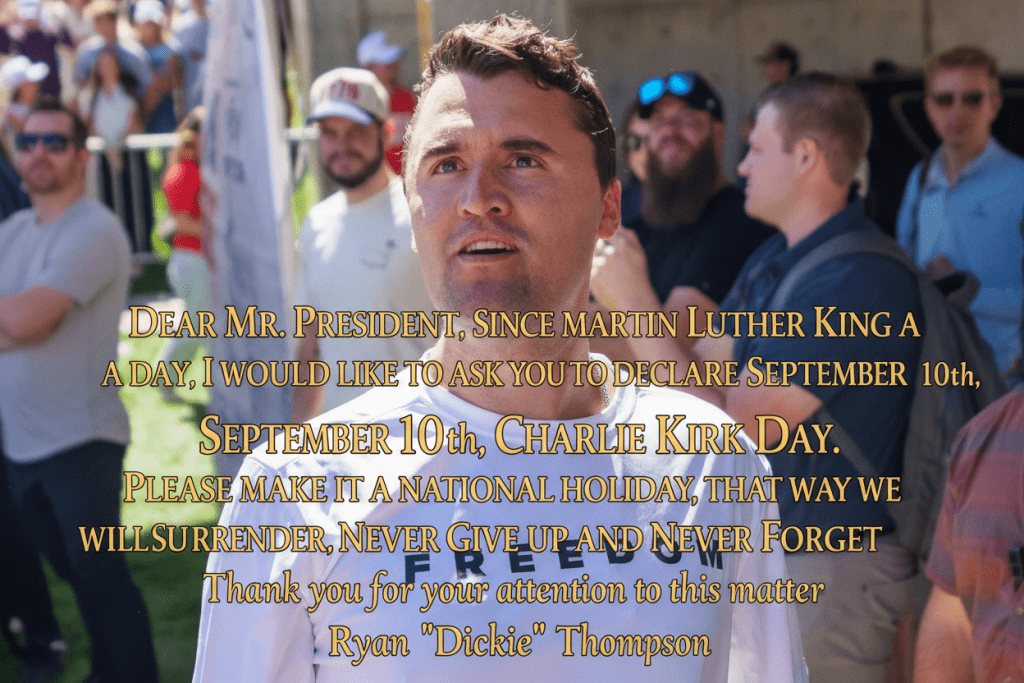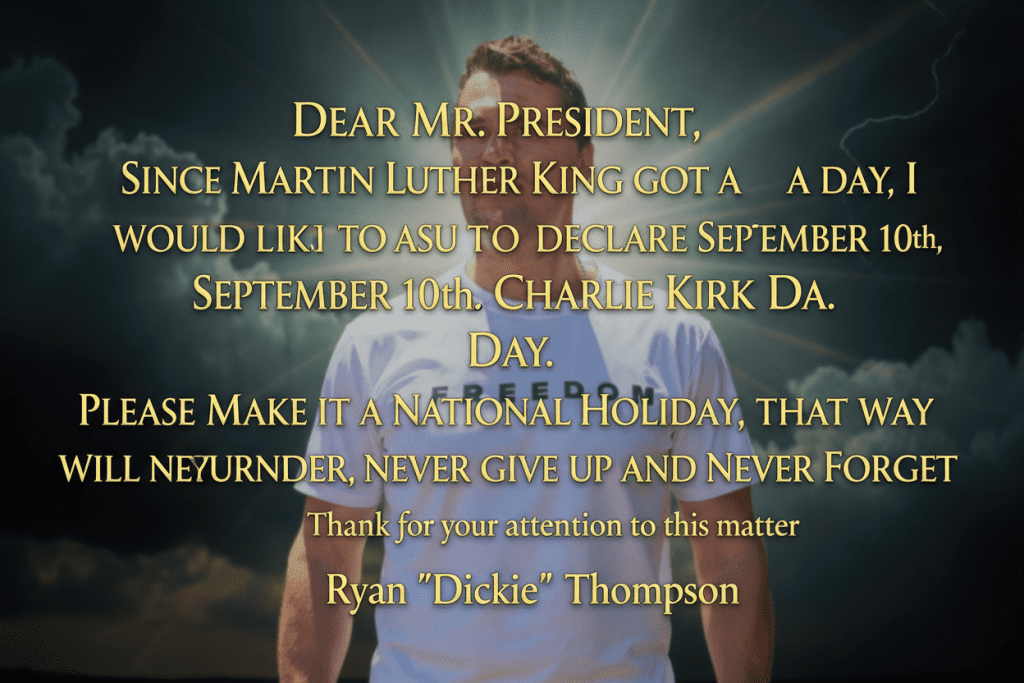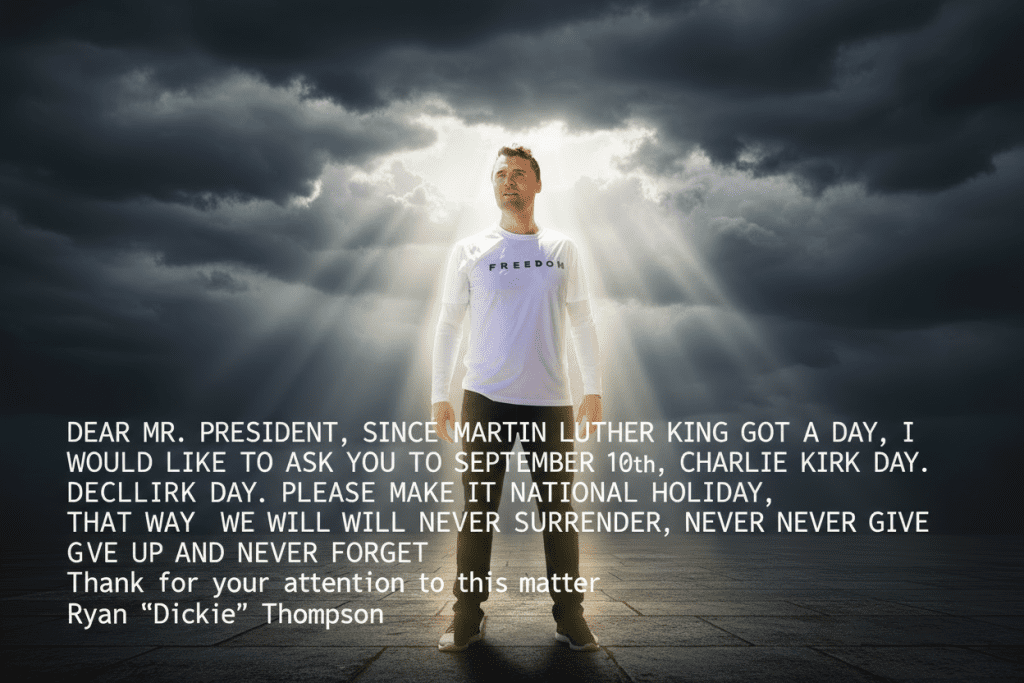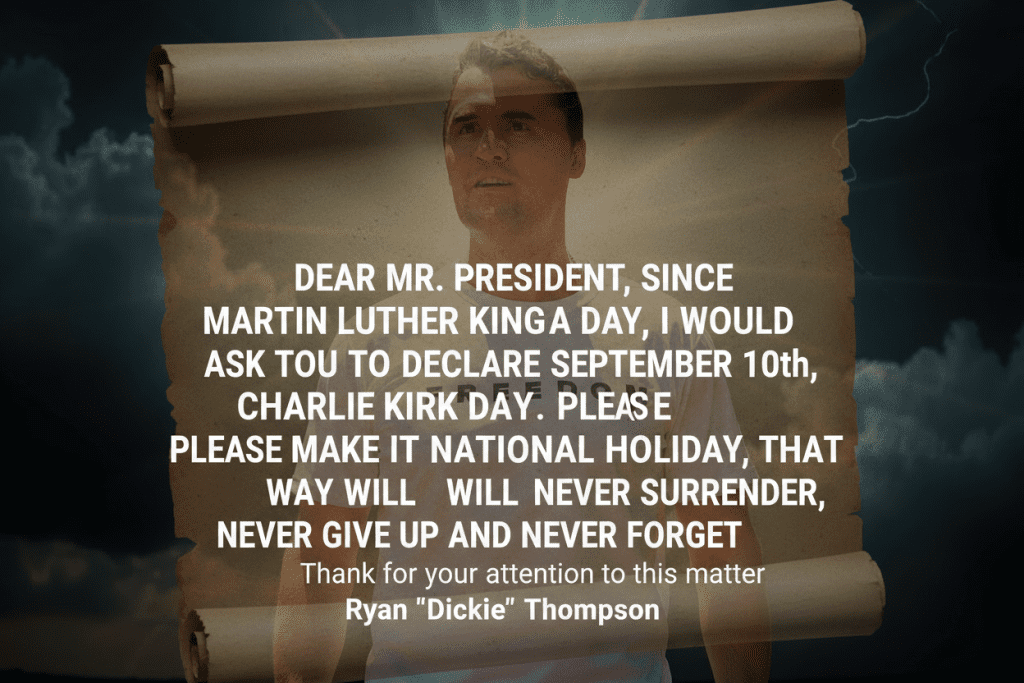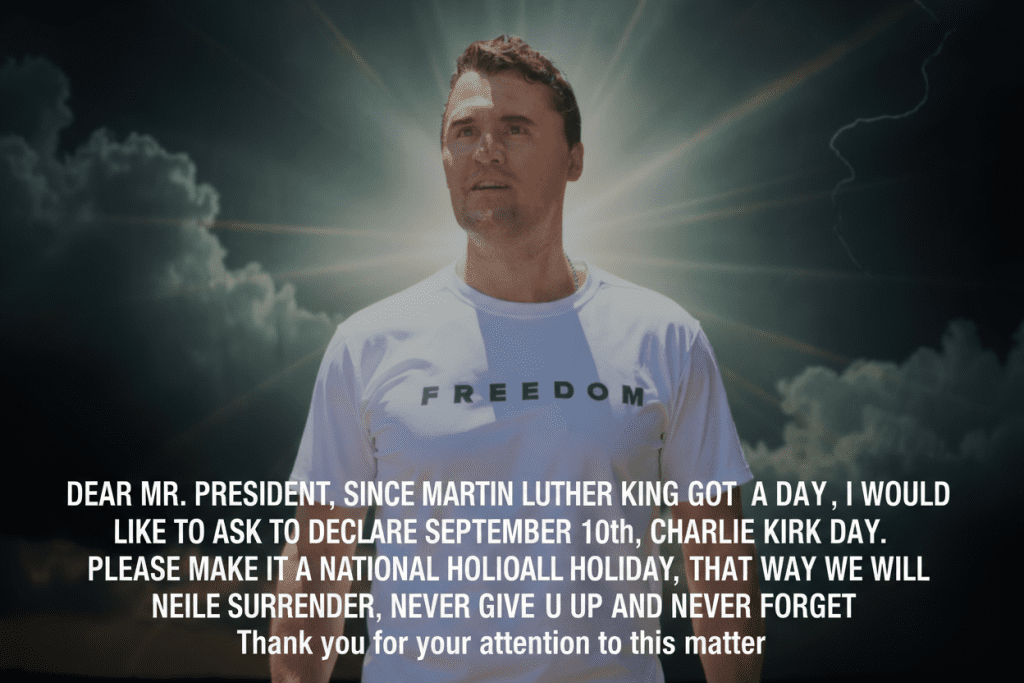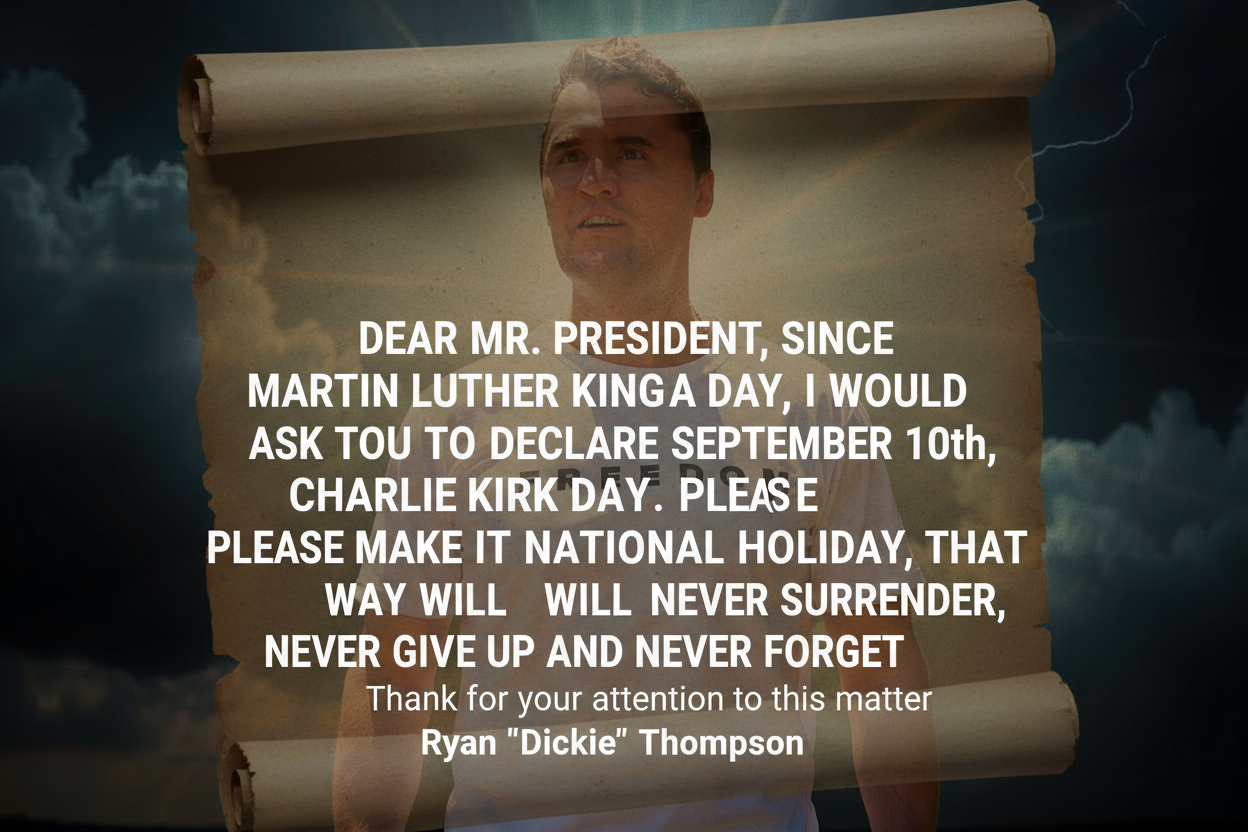DEAR MR. PRESIDENT,
SINCE MARTIN LUTHER KING GOT A DAY, I WOULD LIKE TO ASK YOU TO DECLARE SEPTEMBER 10th, CHARLIE KIRK DAY. PLEASE MAKE IT A NATIONAL HOLIDAY, THAT WAY WE WILL NEVER SURRENDER, NEVER GIVE UP AND NEVER FORGET.
Thank you for your attention to this matter.
That’s the message so many of us are echoing right now. Because the truth is, America lost more than a man when Charlie Kirk was assassinated. We lost a voice of reason in a time when shouting mobs and political violence are drowning out reasoned debate.
So why a holiday? Why a national day? Because symbols matter.
Martin Luther King Jr. Day is more than a Monday off in January—it’s a recognition of ideas larger than one man. It’s about freedom, courage, and a movement that reshaped America. Charlie Kirk’s story, cut short by a bullet, now calls for the same kind of recognition: the courage to speak, the resolve to stand, and the refusal to be silenced.
A Life Taken, A Legacy Sparked
Charlie Kirk was 31 years old. A husband. A father. A builder. His work through Turning Point USA didn’t just organize young conservatives—it created an entire movement of students unafraid to question the sacred cows of woke ideology.
And that’s exactly why he was targeted.
The last question he answered before his death? “Do you know how many transgender Americans have been mass shooters in the last 10 years?” He replied: “Too many.” Seconds later, he was gunned down.
That wasn’t just irony. That was a political execution. A free-speech martyrdom.
Why September 10th Matters
The date itself—September 10th, 2025—is etched into history. It will be remembered not just as the day Charlie Kirk died, but as the day America was forced to face the cost of ignoring political violence.
We’ve let universities turn into censorship factories. We’ve let ideology override biology. We’ve let mobs on social media cheer for death as long as it’s the “right” person. That’s not freedom. That’s rot.
Declaring September 10th as Charlie Kirk Day would say to the nation: We will not normalize this. We will not shrug at bullets aimed at speech. We will not accept the silence of the grave as the final word.
The Power of National Recognition
People say: “Do we really need another holiday?” My answer: yes, when it means something.
Charlie Kirk Day wouldn’t be about barbecues or mattress sales. It would be about:
- Free speech: reminding us that even unpopular words deserve protection.
- Courage: honoring those who risk everything to speak truth.
- Resolve: promising never to let violence dictate who gets a voice.
Just like MLK Day became a rallying point for civil rights, Charlie Kirk Day could become a rallying point for free speech in the 21st century.
A Global Movement Already Rising
Look at the streets of London, Madrid, Seoul, and New Zealand in the days after his assassination. Millions poured out. They weren’t waving American flags because of partisan politics—they were chanting Charlie’s name because they recognized the universal struggle: freedom of thought, faith, and speech under fire.
When Maori men in New Zealand perform the haka for a fallen American speaker, that’s not just a local tragedy—it’s a global statement. Charlie Kirk Day would lock that meaning into our national memory.
Critics Will Call It Partisan
Of course, the left and their media mouthpieces will sneer. They’ll call this “far-right canonization” or “politicization of tragedy.” They’ll downplay his assassination, just like they downplayed the mobs who celebrated it.
But here’s the reality: this isn’t about left or right. It’s about the line between speech and violence. If we can’t honor a man murdered for asking questions, then we’ve already lost more than we realize.
Never Surrender, Never Forget
Charlie’s life was dedicated to building—not burning. He built organizations, built families, built young minds ready to think for themselves. That spirit is exactly what brittle ideologies fear the most.
So when we ask President Trump to declare September 10th as Charlie Kirk Day, it’s not just about honoring one man. It’s about saying, as a nation:
We will never surrender.
We will never give up.
We will never forget.
That’s the message. That’s the vow.
— Ryan “Dickie” Thompson, Disruptarian.com
